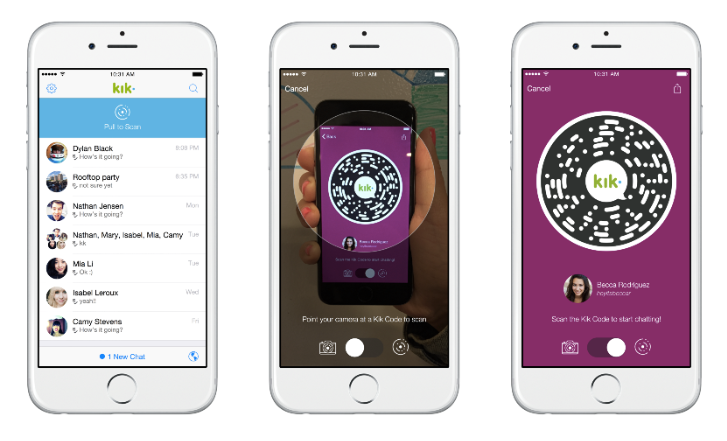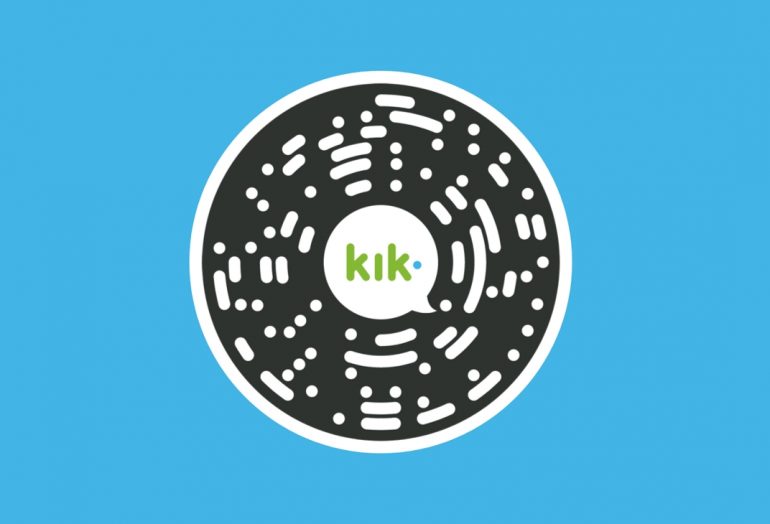University of Waterloo Systems Design Engineering student Katherine Carras recently shared a Medium post about her time as a co-op at Canada’s newest unicorn, Kik. We found the article instructive for both students and startups, and have syndicated it below with permission. Enjoy!
Recently, Kik released a major feature: Kik Codes. Codes, as I affectionately refer to it, has a special place in my heart. Why? I designed it. The funny thing is, I’m just a student. I, along with 26 other students, work at Kik to help create awesome products to ship to our users. We are mentored by Kik’s full-time employees every day to develop our skills as we work in their fast-paced, high-intensity culture.
So why on earth did a company like Kik leave the UI/UX design decisions of such an important feature to some kid from the University of Waterloo? It’s called the co-op program, and let me tell you, it’s something special.
Co-op is essentially a full time, paid internship for students in any area of academia to apply their knowledge to projects in the work place. I’m studying Systems Design Engineering at the University of Waterloo. In my five-year program, I have six four-month co-op placements at any company, in any field, and in any position I am interested in (granted that I land the job in the first place).
When I was first given the Kik Codes project, all that had been designed was the code itself (which, by the way, was also done by a co-op student from UW). Over the last four months, I have invested countless hours into making this feature useful and beautiful for Kik users. I’ve created wireframes, conducted UX research, user tested, designed interfaces, animations, interactions, and much more. I was the only designer on Kik Codes, meaning I had full creative reign over every design decision. This kind of responsibility and ownership is huge for a student; it gave me a chance to learn what it’s like to be a lead designer on a major product feature at just 20 years old.

This was actually my second term at Kik. I had originally made a promise to myself that I would never repeat a co-op placement. The way I saw it, I had six terms to try six different things. But then I started working at Kik. It was my first design job ever, but right from the start, my mentors were incredibly supportive; they knew my skill level and were devoted to helping me learn. In my first term, I independently redesigned Kik Points, a digital rewards program. While working on Points, I learned what it’s like to be a real designer; I did everything from wire-framing to pixel-pushing, and worked with an awesome team of developers to make my ideas a reality.
When my first term at Kik was over, I was faced with a choice: take my newfound skills to another company, or return to Kik for another four months. This was not an easy decision for me, but after much deliberation on a professional and personal level, I chose to return to Kik for three reasons:
1. The People
Kik is a 100-person company, about a quarter of which are co-ops. That means a significant portion of the staff changes every four months. This doesn’t stop the team from getting to know the co-ops; in fact, it encourages them to forge meaningful bonds with their students to make sure both parties have the best possible experience. We may go on some pretty cool off-sites (the last one involved axe-throwing), but sometimes we just kick back on Friday nights with a beer or two and hang out in the office. I made so many good friends in my first term that I was tempted to return just to work with them again.
2. The Mentorship
I learned so much in my first co-op term at Kik. Beyond the mentorship I received in design, I got to learn about web development, data analysis, and marketing through interacting with other team members. Everyone at Kik is willing to teach you something if you are willing to learn.
3. The Project
When I was told I would be working on Codes if I were to return to Kik, I was definitely intrigued. I had never worked on a project of such magnitude, or that would be used by so many people (Kik has more than 240 million registered users). I couldn’t shake the feeling that this project would be a pivotal moment in my career, and my ticket into the professional design community. It’s not every day a company entrusts a student with a project like this, and I didn’t want to give up such a unique opportunity.
It’s crazy to think Kik puts so much trust in its co-op students, but a big part of why they do is because we are students. We’re only at the company for four months, so we have a unique perspective when it comes to the products Kik creates. One of the reasons Kik cares so much about the co-op program is that many of its employees started off as co-ops themselves. Because of their background, the team has a profound understanding of the value of this style of education, for both the company and the students.
I credit so much of my design knowledge and skill to working at Kik, and am so thankful for the time I got to spend there. It has been an incredible eight-month journey, full of hard work, good friends and great memories. Being the designer on Kik Codes has been an amazing foundation for my career in design, and I can’t wait to apply my skills to the next project that comes my way!


